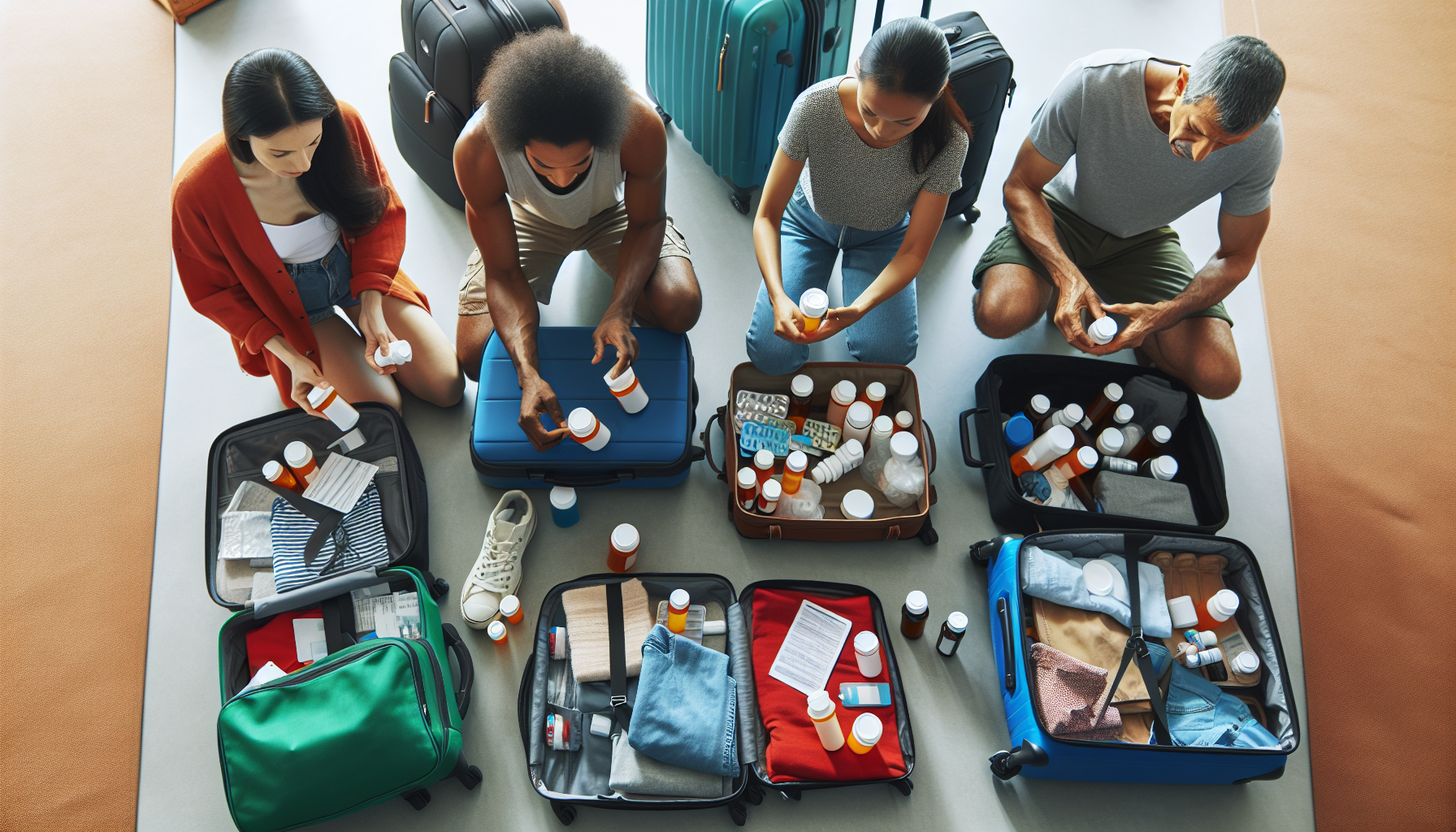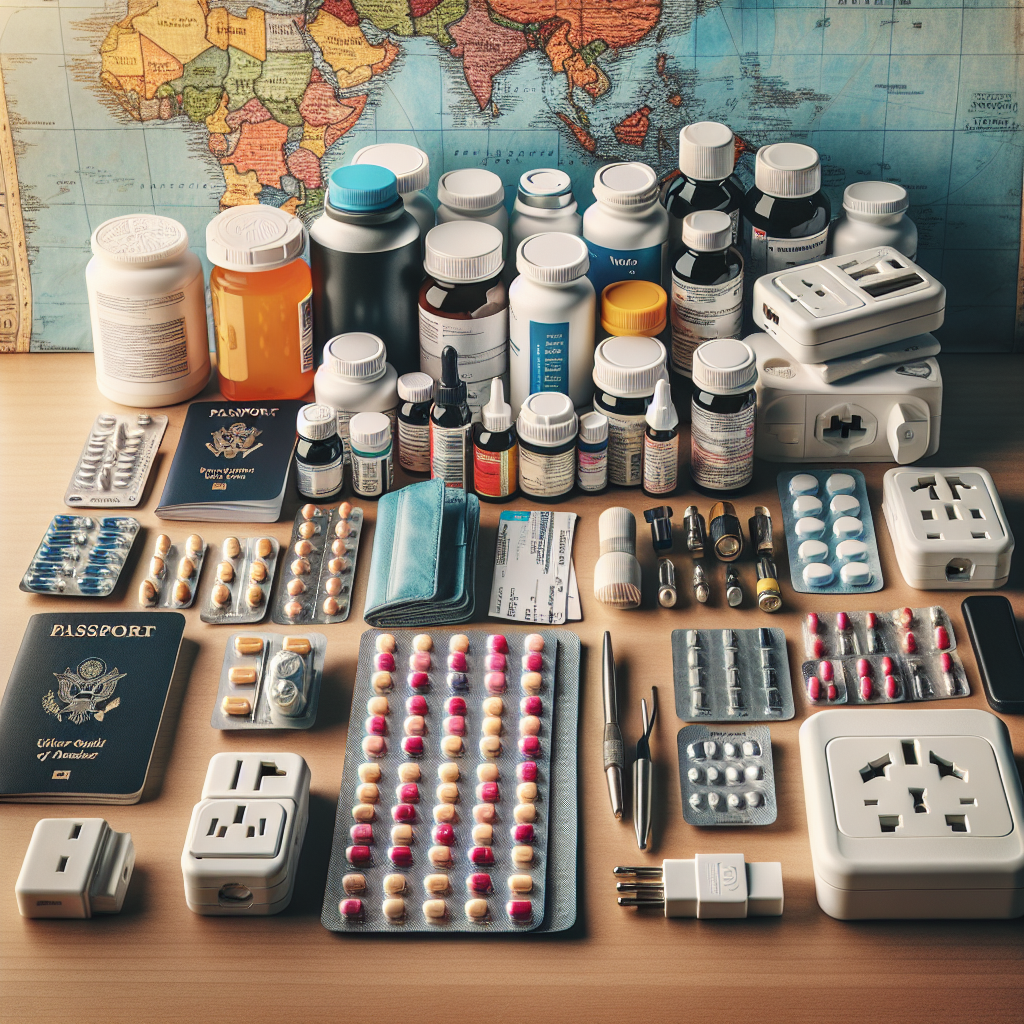Traveling with medication requires careful planning and consideration to ensure your health and safety while away from home. Whether you’re jetting off for a weekend getaway, embarking on a business trip, or planning a long vacation abroad, managing your medications is essential. In this comprehensive guide, we’ll explore various strategies and tips to help travelers maintain their medication regimen, prevent potential health risks, and navigate through different travel scenarios with ease.
Understanding Your Medication Needs
Before you set off on your journey, it’s crucial to have a thorough understanding of your medication needs. This includes knowing the generic and brand names of your medications, their purpose, dosage, and the schedule at which they should be taken. For individuals with chronic conditions, it may be beneficial to consult your healthcare provider to discuss travel plans and any adjustments that might be needed to your medication schedule, especially when crossing time zones.
Pre-Travel Medication Checklist
Creating a pre-travel medication checklist is an excellent way to ensure you have everything you need. Here are some key points to include in your checklist:
-
Medication Supply: Ensure you have enough medication to last the entire trip, plus extra in case of delays. Always keep medications in their original containers with clear labels.
-
Legal Restrictions: Research the legal restrictions and requirements for medications in your destination country. Some medications that are legal and commonly prescribed in your home country may be restricted or illegal elsewhere.
-
Healthcare Provider’s Note: Obtain a letter from your healthcare provider detailing your medications and the necessity of each, which can be helpful during airport security checks or if you need medical assistance while traveling.
-
Emergency Contact Information: Carry contact information for your healthcare provider and a list of medical conditions and medications in case of an emergency.
Packing Medications for Travel
When packing medications for travel, consider the following tips:
-
Pack Smart: Keep medications in your carry-on luggage to prevent loss during transit. Use pill organizers to manage dosages and timing, but also bring the original containers.
-
Temperature Sensitivity: Some medications may be sensitive to temperature changes. Use insulated medication bags if necessary to maintain the correct temperature.
-
Accessibility: Ensure that your medications are easily accessible, especially if you need to take them during your flight.
Medication Management Across Time Zones
Traveling across time zones can disrupt medication schedules, particularly for time-sensitive prescriptions. Plan ahead by adjusting your medication schedule gradually a few days before departure to align with the time zone of your destination. Depending on your itinerary, you may need to consult with your healthcare provider to devise a plan that maintains the effectiveness of your medication routine.
Traveling with Special Medications
Travelers with special medication needs, such as injections or liquid medications, should be aware of airline policies and regulations. TSA guidelines, for example, allow travelers to carry medications in liquid form in excess of the standard 3.4 ounces, but they must be declared and screened separately.
International Pharmacy Considerations
In some cases, you may need to refill a prescription while abroad. This requires understanding the pharmacy system in your destination country. Be aware that medication names and strengths may differ, and some prescriptions may not be readily available. Researching pharmacies and medication availability in advance can prevent complications during your trip.
Staying Informed and Prepared
Staying informed about your health and prepared for different scenarios is key to safe travels. Here are additional resources that travelers may find helpful:
- Centers for Disease Control and Prevention (CDC): The CDC’s Travelers’ Health page offers information on health notices and vaccinations required for international travel.
- World Health Organization (WHO): The WHO’s International Travel and Health page provides guidance on health risks and precautions for travelers.
- U.S. Department of State: The Travel.State.Gov page offers resources and tips for safe and healthy international travel.
Relevant Avixhealth Articles
During your travel preparations, consider exploring the following related articles from Avixhealth for additional insights and tips:
-
Learn about the vital role of Medication & Supplements in maintaining health while on the move.
-
Discover strategies for Managing Medication Costs, to help budget for your health needs during travel.
-
Understand Drug Interactions to avoid adverse effects while combining medications with travel-related factors such as diet and activity changes.
Additional Tips for a Healthy Travel Experience
While managing medications is a significant aspect of travel health, there are other considerations to keep in mind:
-
Hydration and Nutrition: Maintain proper hydration and eat a balanced diet to support your body’s needs and medication efficacy.
-
Physical Activity: Incorporate regular physical activity into your travel schedule to promote overall well-being and reduce the risk of blood clots during long flights.
-
Sleep and Rest: Adjusting to new time zones can impact your sleep patterns. Prioritize rest to help your body adapt and support medication effectiveness.
-
Stress Management: Travelling can be stressful, which may affect your health. Practice stress-reduction techniques such as deep breathing, meditation, or journaling.
Conclusion
Traveling with medication does not have to be a daunting task. With proper planning, organization, and awareness of regulations and health considerations, you can enjoy a safe and healthy travel experience. Remember to consult with your healthcare provider, stay informed about your destination’s healthcare system, and take proactive steps to manage your medication regimen while on the go. Safe travels and happy explorations!



